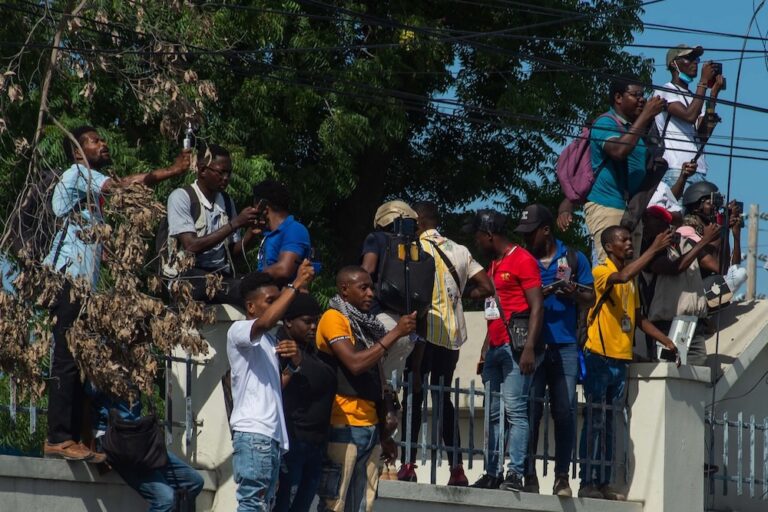The crisis in the country worsened in the last six months with mass protests against the government's policies and state corruption. The protests resulted in almost three dozen deaths and some one hundred injuries, among them a news photographer in an incident that brought attention to the constant danger that the press faces.
This statement was originally published on en.sipiapa.org on 27 March 2019.
Report on the situation in Haiti to the IAPA’s Midyear Meeting 2019
The crisis in the country worsened in the last six months with mass protests against the government’s policies and state corruption. The protests resulted in almost three dozen deaths and some one hundred injuries, among them a news photographer in an incident that brought attention to the constant danger that the press faces.
In addition, the disappearance of news photographer Vladimir Leganeur marked this March one year without the authorities having solved the case, despite the insistence of the victim’s family, national media and organizations dedicated to the defense of press freedom and human rights.
On February 7, hundreds of thousands of people took to the streets in Port-au-Prince and main cities at the start of a series of protests launched by the opposition that seeks the ouster of President Jovenel Moïse.
The protests turned violent and lasted for two weeks in a demand for better living conditions and for clarification of the fate of some 2,300 million dollars coming from the Venezuela program Petrocaribe (and that has in addition given rise to an unprecedented movement in social media known as #PetroCaribeChallenge), supposedly embezzled by various officials in the last three governments prior to that of Moïse.
In the middle of those protests on February 13 Haitian journalist Robenson Sanon, a cameraman with Reuters news agency, was shot in the arm apparently accidentally as he was covering clashes between protestors and police.
Twenty-six people died and at least 77 were injured, according to information from UNICEF cited by the Inter-American Commission on Human Rights.
President Moïse’s response was to cut back the Prime Minister’s budget by 30%, eliminate the privileges of senior government officials, recover money lost in the Petrocaribe case, reduce the prices of basic products and initiate a national dialogue to halt the crisis.
Violence against journalists continues to be a constant, as is impunity.
The case of the disappearance on March 14, 2018 of news photographer Vladimir Legagneur still has not been solved. Police reported the finding of a body in the Grand Ravine neighborhood of Port-au-Prince where he had been seen for the last time, and it will be subjected to DNA testing, but to date there has been no conclusive report.
Added to the serious situation of generalized poverty, the absence of infrastructure and the scant provision of basic services is a lack of security, a fact that according to the new Senate chairman Carl Murat Cantave could force a postponement of the legislative and municipal elections that are scheduled to be held in October.
Despite the important achievements in recent years violence continues to be a serious problem. In the first quarter of the year the Episcopal Justice and Peace Commission of the Catholic Church recorded 101 violent deaths (44 in January, 20 in February and 37 in March), 65 of which were the result of shootings.
Since 2000 more than a dozen Haitian journalists have been murdered. These include: in 2013 Georges Henry Honorat, in charge of the weekly Häiti Progrés, and Pierre-Richard Alexandre, correspondent of a national radio station; in 2012 Benson Roc, correspondent of Contact FM radio, and Jean Liphéte Nelson, director of Boukman radio station; and in February 2011 journalist Jean Richard Louis Charles.
Among the most renowned cases are the murders of Jean Dominique on April 3, 2000 and of Jacques Roche, whose body was found on July 14, 2005 after his abduction four days earlier. Also those of freelance photographer Jean-Rémy Badio on January 19, 2007, that of radio host François Latour on May 23, 2007, and that of Alix Joseph, administrative director and host of Radio-Télé Provinciale de Gonaives on May 16, 2007.



